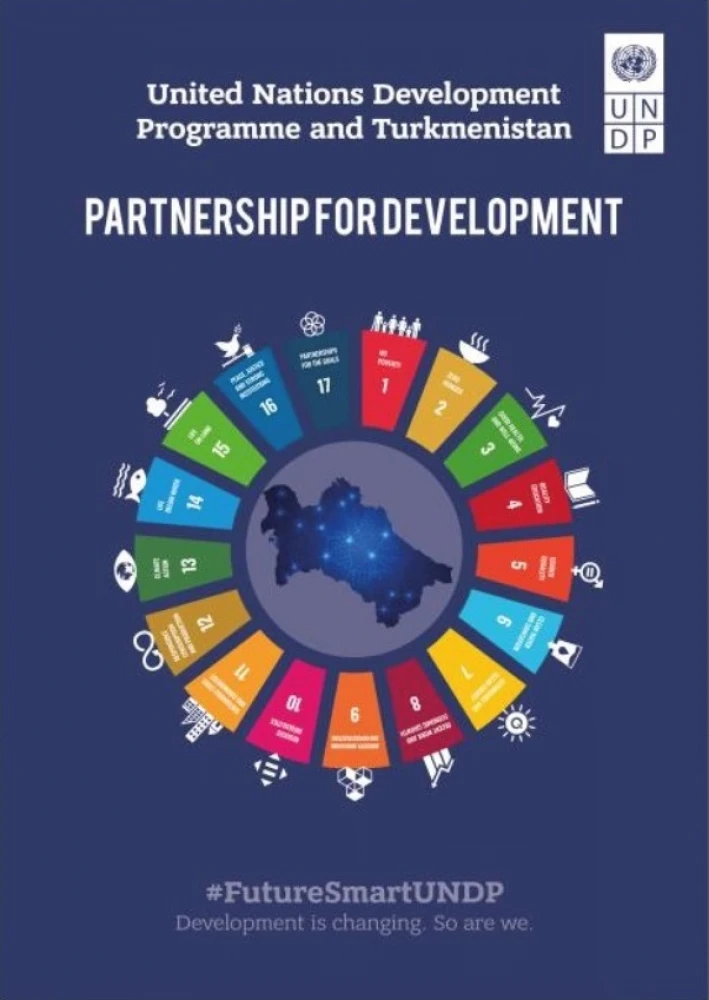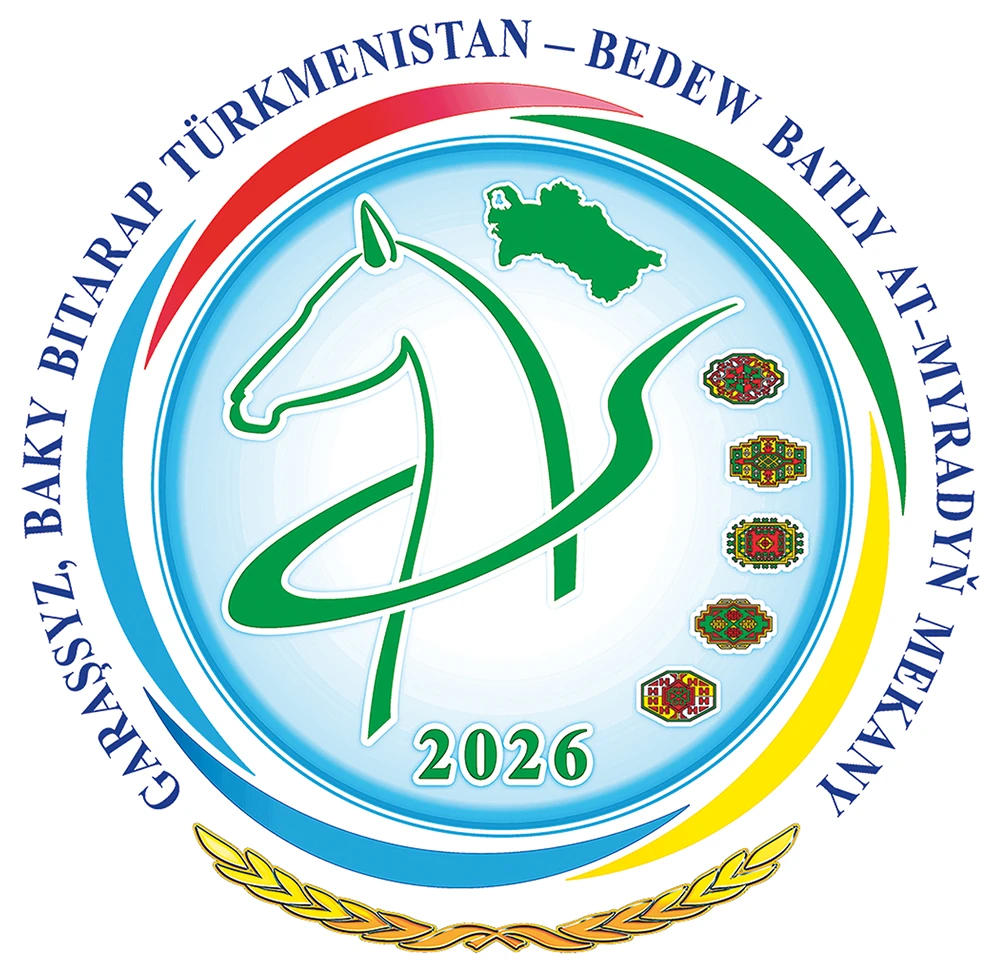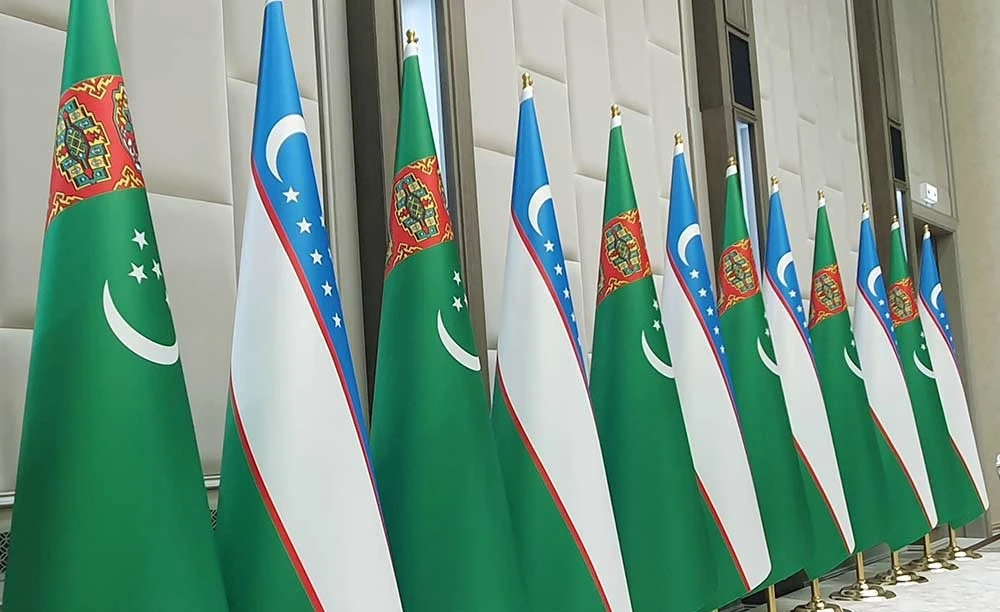
18/04/2024
1266
UNDP and Turkmenistan: Working Together for Sustainable Development
The United Nations Development Programme (UNDP) stands as a pivotal agency within the United Nations system, dedicated to advancing sustainable development worldwide. With a rich history and a diverse range of initiatives, UNDP plays a crucial role in addressing global challenges and fostering inclusive growth. As the leading organization within the UN system advocating for development issues, UNDP works with governments, businesses, civil society, and other partners to implement programs that address key challenges such as climate change, inequality, and conflict resolution. Through its work in more than 170 countries and territories, UNDP provides technical expertise, policy advice, and financial support to help countries achieve the Sustainable Development Goals (SDGs).
Based at United Nations Headquarters in New York City, it is the largest UN development aid agency, with offices in 177 countries. The UNDP is funded entirely by voluntary contributions from UN member states.
In 1949, the UN established the Expanded Programme of Technical Assistance (EPTA) to deliver technical and economic aid to developing countries. This program focused on providing expertise and resources to help nations rebuild infrastructure, strengthen economies, and improve living standards. As development needs became more complex, the UN Special Fund was created in 1958. This initiative addressed larger-scale development projects, particularly pre-investment activities aimed at attracting private sector investment.
The Expanded Programme of Technical Assistance (EPTA) and the Special Fund were both created to tackle development objectives, with some similarities in their functions. In the early 1960s, the United Nations started to consider a merger as a way to improve efficiency. Finally, in 1966, the UN General Assembly took a historic step by officially consolidating EPTA and the Special Fund to form the United Nations Development Programme (UNDP). The aim of this consolidation was to create a development organization that is both more efficient and impactful.
The history of UNDP reflects a continuous adaptation to the needs of the times. From post-war reconstruction to tackling contemporary challenges, UNDP's commitment to development remains steadfast. As the world faces new challenges, UNDP's role in fostering sustainable and inclusive progress will undoubtedly remain crucial.
At the core of UNDP's mission is the commitment to combat poverty and inequality. The organization strives to promote sustainable economic growth that benefits all individuals, rather than just a select few. This involves fostering entrepreneurship, generating quality employment opportunities, and guaranteeing fair access to resources. Additionally, UNDP endeavors to enhance institutions and governance in order to cultivate a conducive environment for long-term economic prosperity. UNDP supports the development of these institutions, promoting democratic governance, human rights, and the rule of law. This focus on governance and social cohesion extends beyond just institutions. UNDP works to bridge societal divides, addressing inequalities, promoting social inclusion, and preventing conflict.
However, a thriving economy and strong societies cannot exist on a fragile planet. Recognizing this, UNDP places great emphasis on climate, energy, and the environment. They support countries in adapting to the impacts of climate change, mitigating its effects through renewable energy sources, and building climate-resilient infrastructure.
Finally, UNDP recognizes that true development cannot be achieved without the full participation of all. Gender equality is not just a moral imperative, but a key driver of progress. UNDP works to empower women and girls by promoting equal access to education, healthcare, and economic opportunities. They also advocate for women's participation in decision-making processes, ensuring their voices shape a brighter future.
These four focus areas are not isolated efforts, but rather the building blocks of a more sustainable future. By promoting economic growth that benefits all, strong institutions that uphold human rights, environmental protection for a healthy planet, and gender equality for an inclusive society.
The United Nations Development Programme (UNDP) and Turkmenistan have built a strong partnership focused on the country's development priorities. This collaboration, outlined in the Country Programme Document, aligns with both the strategic goals of the Government of Turkmenistan and the UN Sustainable Development Cooperation Framework. UNDP's support encompasses various sectors, playing a vital role in helping Turkmenistan navigate the challenges and opportunities of the 21st century.
One key area of focus is digital transformation. Recognizing the importance of digitalization in the modern world, UNDP is actively supporting Turkmenistan's efforts. A recent project focuses on creating an Electronic Data Interchange System, the backbone for future interagency data communication. This project builds on a 2022 Memorandum of Understanding with the Turkmenaragatnashyk Agency and aims to strengthen Turkmenistan's digital capacity across various sectors.
Sustainable development is another crucial area of cooperation. UNDP works with Turkmenistan on achieving sustainable development goals. This includes environmental protection, promoting renewable energy sources, and building climate resilience. These efforts ensure long-term environmental health while safeguarding economic prosperity.
A particularly noteworthy initiative is UNDP's project on fostering financial markets. This ongoing project, implemented jointly with the Ministry of Finance and Economy of Turkmenistan, directly addresses development in this crucial sector. The project focuses on enhancing the Ministry's capacity to oversee and regulate the securities market. By strengthening the regulatory framework and building capacity, UNDP is helping Turkmenistan create a financial system that can attract investment, facilitate domestic business growth beyond the hydrocarbon sector, and contribute to a more diversified and resilient economy.
Nazar MEREDOV,
Lecturer of the Faculty of International Economic Relations
of the Institute of International Relations
of the Ministry of Foreign Affairs of Turkmenistan.


